This interview was conducted by Emma Breitman (she/her), a Boston-based writer and editor. Her work has been published in Teen Vogue, The Boston Art Review, and Hey Alma, among others. She has much to say about art, film, queerness, and Jewish identity.
Upcoming event:
Artists talk with Lucie March, Martha Schnee, and Lena Warnke
Friday, April 12, 6:30 pm
I wake up in your bed is a show that burrows itself into every nook and cranny of intimate relationships—examining intimacies in front of and behind the camera; between the audience and the makers—and actively unsettles normative ideas of how we can relate to romantic, platonic, and familial connections.
Its sense of place invites the viewer in and courageously drops them into the intimate and imperfect web of connections built by Lucie March, Martha Schnee, and Lena Warnke.
So, on a customarily gray Camberville Sunday, I invited Lena, Lucie, and Martha into my own intimate space: my small living room, to discuss this body of work.
Emma: Can you all share a bit about your relationship with one another and how the camera has played a role?
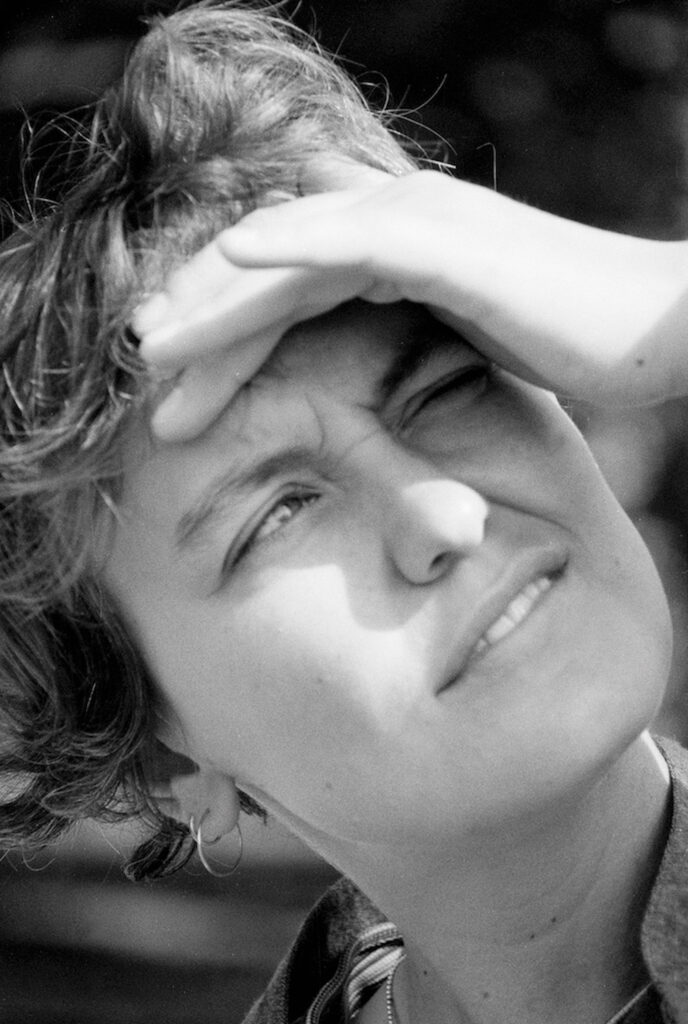
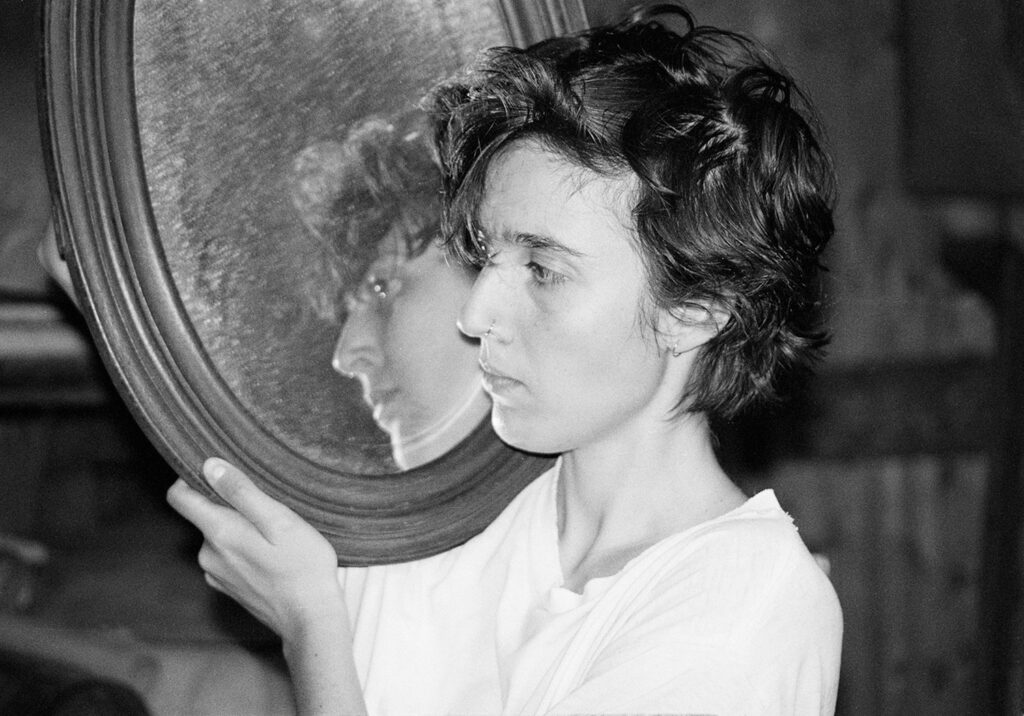
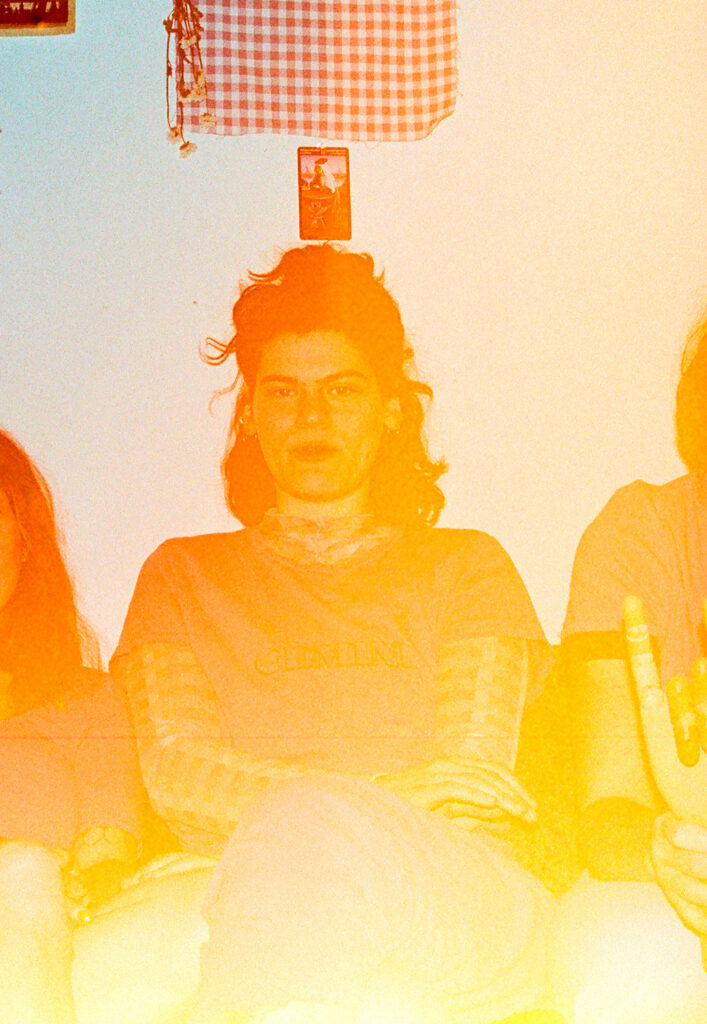
Lena: Martha and I have known each other since high school, and we’ve been close for a long time. Currently, we are neighbors and we’re in an art collective and a band together called sidebody. The camera, specifically film, has been a part of our relationship for a long time. In the pandemic we would shoot film on each other’s cameras and get it developed together. We would get the rolls back and not know whose roll was whose. We’d have to look at it all together to figure it out.
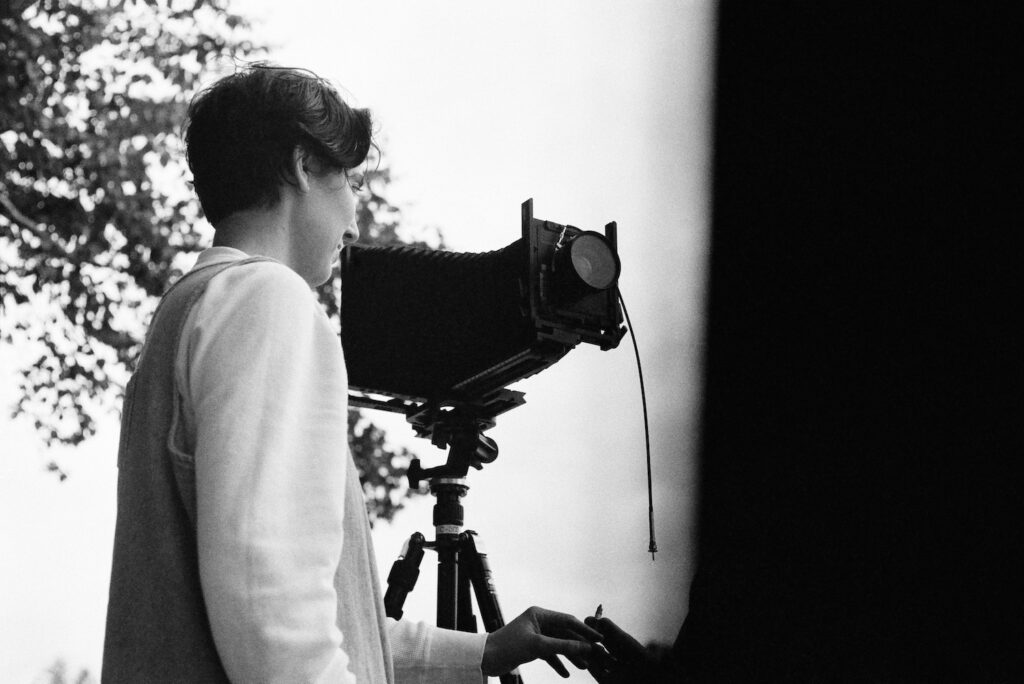
Martha: That process has been part of our relationship for a long time. I met Lucie at our friend’s wedding. I was thinking about MFA programs, and Lucie was in an MFA program so we traded info. But right after I met Lucie, I was like, I feel like she’s perfect for Lena. And the rest is sort of history. Lucie came into the mix of photo-making shortly thereafter.
Lucie: Lena and I started having a collaborative photo practice almost immediately. I had my own photo practice that involved collaboration for many years. I started sharing rolls with Lena, and whatever camera was at whoever’s house would just be the camera we were shooting with at that moment. It stopped mattering who was pressing the shutter.
Martha: We started writing and talking and then started collaborating a bit more formally. There was a moment where I “retired” from photography. We were in Colorado: I was really frustrated with some technical stuff that was happening with my camera. I had messed up like the numbers on the f-stop for a full roll and didn’t realize, but the roll came out fine.
Lucie: There’s a lot of photographic mistakes or camera fuck ups in the show, but I think it makes a picture great. Maybe there’s a light leak, or you open the back of the camera. The big orange print was a mistake. We were in sidebody studios in Somerville. Martha accidentally opened the back of the camera and then quickly closed it. We got it processed and it was this gorgeous light leaked image and we were sort of like “we all made the picture together.”
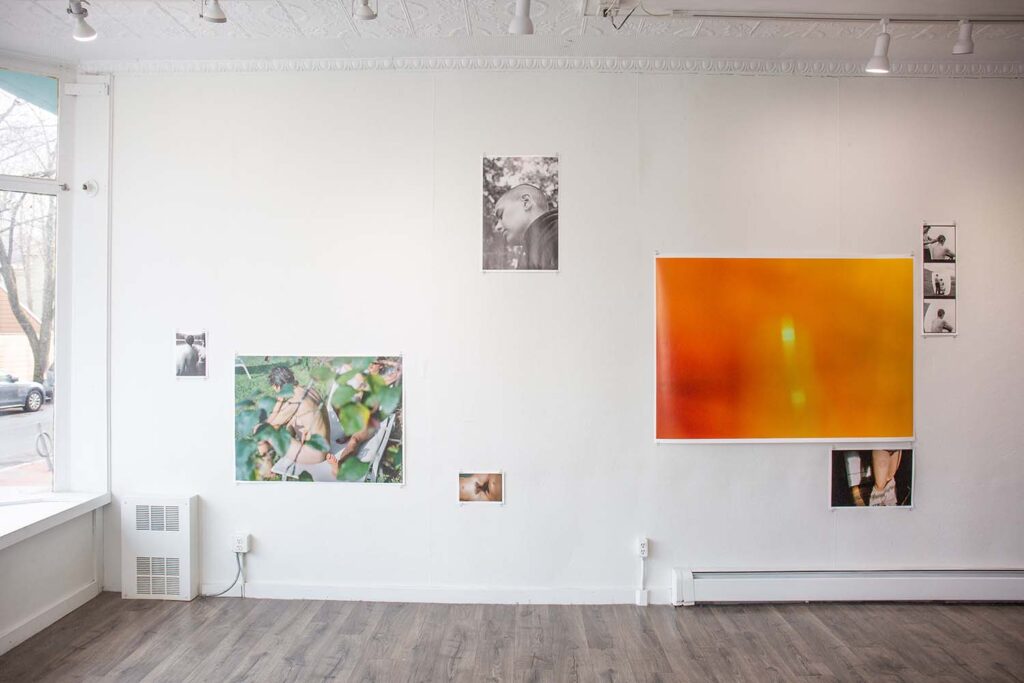
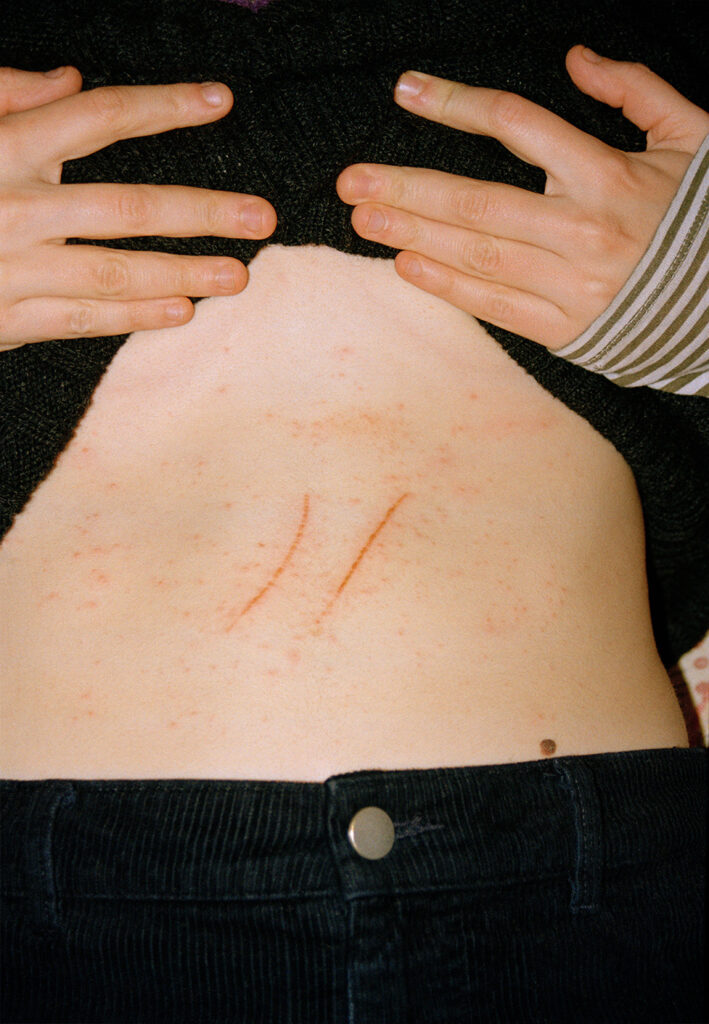
Emma: I noticed you smoothly juxtapose tenderness with, not necessarily brutal images, but images of injuries. Do you think this contrast says anything in particular about your relationship to one another?
Lena: That’s a good question. Some of those moments that you were referring to, like the picture of the bruises and scratches, actually feel very tender to me.
Martha: In the images of the bruise or the scratch, I feel like there’s so much care present. We were going over what medicine I was supposed to use and reading the instructions while the photo was being made. So at the same time it felt like a way that I was able to be cared for by friends through a body injury of sorts.
Emma: I really like how your work blurs this line between platonic and romantic. I see this as an extension of queer theory. I want to know if this resonates with you all, and if so I’m curious to know if there are any works that you all feel have influenced the process?
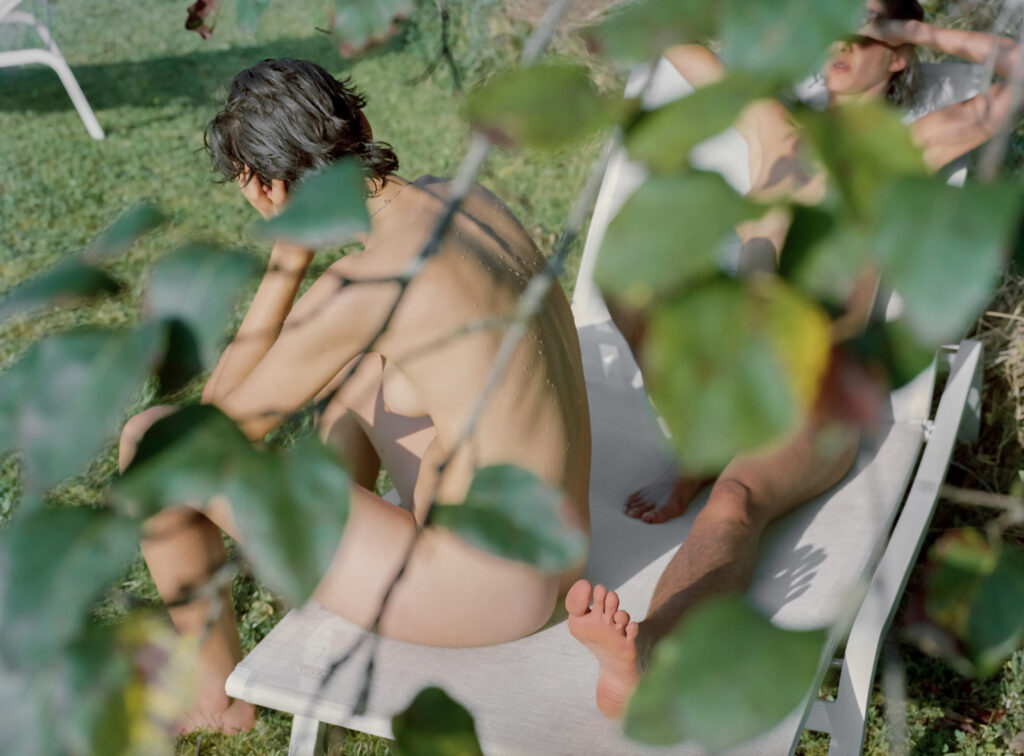
Lena: In short, yes, absolutely. I think it’s also about valuing friendships in the same way that we value romantic relationships. I hope there’s some ambiguity in the photos about the relationships between people. There’s a lot of intimacy, but is it platonic? Are they family? Are they romantically involved? I think for the viewer it’s not clear, and that’s because there’s a lot of overlap between types of intimacies that those relationships hold.
Martha: There is something in the undefined nature of what love sometimes means. We all try to push on what a relationship is supposed to be or look like, and how romantic or platonic relationships are valued. For me, it’s very important to hold space for both.
Lucie: Carmen Winant’s work was definitely an inspiration. In her project Notes on Fundamental Joy, she looks through lesbian archives, specifically lesbian separatist communities. Built into almost all of these communities were photography workshops where everyone would photograph each other and no one had ownership over the images. It was very similar to the way that we were thinking about our images together and not having any one image attributed to anyone. It was interesting to discover that there was a history for this, a lineage.
Emma: Was there anything that you all learned about each other throughout the process?
Lena: Lucie and I were just talking about this. Collaborating with two other people on a show is very different from doing a solo project, because every decision has to be talked through. It made me think very carefully about each step. We also all work differently, so finding a way to make it work together was really fun and sometimes a little challenging.
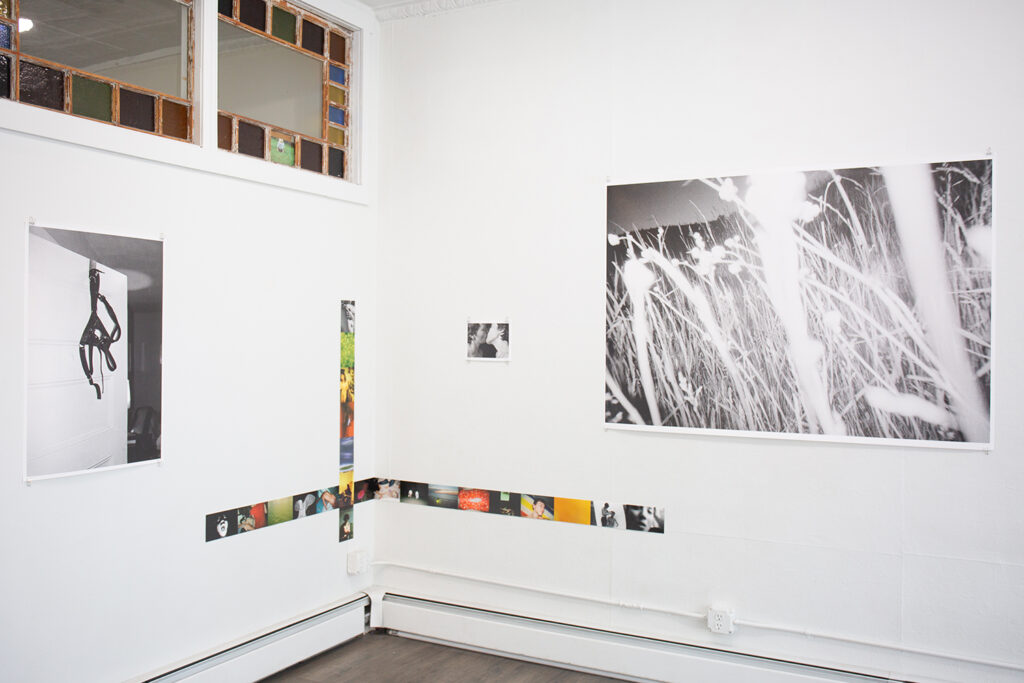
Martha: I feel like there’s two visual representations of this in the zine that accompanies the show. There’s a chart of our overlapping anxieties and there’s a chart of our reptile AI spectrum, which is a framework that my old roommate and I developed for figuring out how to collaborate or how to be in relation. Thankfully, whenever we hit hiccups, I remember saying, and thinking and feeling, I am so glad these are my friends in this moment.
Emma: Where does the work go from here? And is there something you all are excited to explore with one another next?
Lena: This feels like one marker in a process that has existed for a long time and will continue. Maybe the show will travel somewhere else, and probably some changes will be made as our relationships continue to exist and we continue to make work. You know, we’re in our early 30s now, we’ll have this show again when we’re 45, and then we’ll have it again when we’re 70 and then again at 95.
Martha: Yeah, this was such an organic process and I feel like we have a framework around collaborating and making work together. But also we made a zine as part of this [show], that was our notebooks. And so I’m thinking about how we might document our relationships through those other ways too.
I wake up in your bed is on view from March 21 through April 20, 2024, with a free artists talk on Friday, April 12 at 6:30 pm.